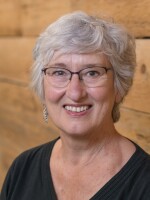When I heard that Maria Franziska von Trapp, the last surviving sibling of the original Trapp Family Singers, had died, I dusted off the old LPs they made for RCA Victor from 1938 to 1956 and took a fresh listen. The great choral conductor Robert Shaw, mentor of Vermont’s Robert De Cormier, once called these singers “the greatest choral group in the history of recorded sound.” And, despite surface noise like frying bacon on these old recordings, the reason why remains crystal clear.
What I hear above all is an amazing purity and joy, a unison that seems effortless. Yet that apparent ease was the result of tireless work, daily rehearsals, and the genius of their music director, Franz Wasner – a brilliant arranger who came to the family initially as a Roman Catholic priest and led them on their many concert tours in the 40s and 50s.
Without question, their chosen repertoire advanced choral music in this country. Before the revival of “early music” in the 60s, the Trapp family brought Palestrina and Praetorius to concert halls across America. Young Maria played viola da gamba or tenor recorder and sang second soprano.
And long before the folk music revival, Father Wasner was arranging cowboy songs, Maori chants, and Austrian yodel tunes for the family, all jumbled together unapologetically in their tour programs. After one Latin American tour, Wasner brought home 15 pounds of sheet music filled with settings of folk tunes he’d collected, some of which had never before been heard in this country.
But their Christmas albums thrill me the most. Eleanor Roosevelt said she’d never heard Silent Night sung so beautifully. And it’s not just the harmonies or the sweet voices that move me - it’s a purity, a commitment to the music, a joy in telling the story – all hallmarks of true artistry. The passion and skill on those old recordings is remarkable, even if you don’t know their story.
As a singer in the professional vocal ensemble Counterpoint, I’ve toured quite a bit - and found it both exciting and exhausting. But I’ve never had to flee my homeland and make my way in a new country. On their blue and white bus, the Trapp family averaged a remarkable 125 concerts a year from their Town Hall debut in ‘41 to their final concert in ‘56. Once, in Australia and New Zealand, they gave 230 concerts in 6 months. They sang for world leaders, including Mussolini, the Pope, and the Queen of England. Their RCA recordings made them stars.
The Trapp Family Singers survived and flourished through their art, through their music camp in Stowe, and through recordings. But their story is about more than recent immigrants making their way, it’s about having a sense of commitment to faith, music, and family. We’re lucky to have digitally remastered CDs of those original red label records. The joy and beauty of their voices still come through bright and clear.






